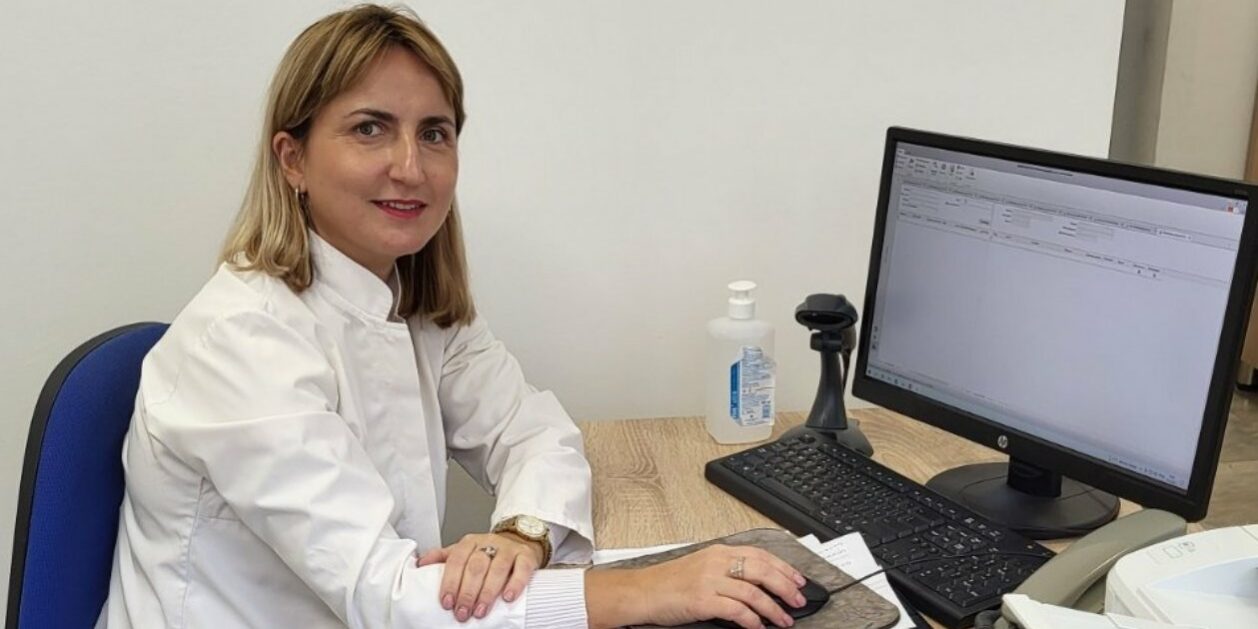Recent researches show that 33% of women with Polycystic Ovary Syndrome (PCOS) struggle with being overweight or obese, says nutritionist Sonja Panovska, M.Sc. in Public Health. Increased secretion of androgenic hormones which causes the cysts to appear, often leads to weight gain, especially around the abdomen, which in turn increases the risk of elevated cholesterol and high blood pressure, high blood sugar, high triglycerides and potentially can result in diabetes and heart diseases.
What should be the diet and the nutrition habits of women with Polycystic Ovary Syndrome?
“Treating PCOS requires a diet that will help you reduce your long-term risks of diabetes and heart disease,” says Panovska, “Getting more fiber can help maintain blood sugar levels and lower cholesterol”.

All studies show that the menu should include foods rich in fiber such as:
- broccoli, cauliflower, arugula
- green salad, cabbage
- red vegetables such as red pepper, red lentils
- and red fruits such as raspberries, blackberries, currants, strawberries,
- sweet potatoes, pumpkin
- fatty fish such as salmon, sardine, mackerel.
Nutritionist Panovska points out that it is important to have more protein in every meal. “Plant-based protein foods can provide more fiber and less saturated fat than other types of protein foods. “Consume beans, peas, lentils, nuts, seeds and tofu, as well as lean meat and poultry, eggs and fish,” she says.

The Treatment of Polycystic Ovary Syndrome is a team effort
The treatment of polycystic ovaries, in addition to tablet therapy, necessarily includes changes in lifestyle, primarily in nutrition habits and regular physical activity. You, your doctor and your nutritionist are a team working together.
The doctor and the nutritionist recommend tablets, a diet plan and nutritional supplements. Some women with PCOS may benefit from a vitamin D supplement if it is deficient in their bodies, or from taking omega-3s and probiotics. For example, Ellova is an excellent natural dietary supplement for the treatment of polycystic ovaries, which can be recommended by your doctor according to your condition.
A nutritionist should:
- Give you a personalized nutrition plan to help manage your PCOS symptoms taking into account your preferences, medical history, culture and lifestyle
- Ensure you get enough of essential nutrients such as fibre, protein, vitamin D and omega-3
- To suggest any nutritional supplements which you would benefit from
- To help you learn how to read food labels and prepare nutritious meals
Foods to avoid
The diet plan for the treatment of polycystic ovaries should never include foods that cause increased secretion of androgenic hormones, such as:
- sweet refined sugars such as white bread, dough, white flour pasta
- sweet refined sugars such as cakes, breadsticks, chips, sweets
- carbonated and sweet drinks

Be physically active
“Don’t forget the physical activity and by regular walks you can maintain body tone,” says Sonja Panovska. Walking instead of using the car or taking the stairs instead of the elevator are a great start to getting your body moving.
Worldwide every September is the Polycystic Ovary Syndrome (PCOS) Awareness Month – the most common endocrinological disorder that affects 10% of women during their reproductive years.



